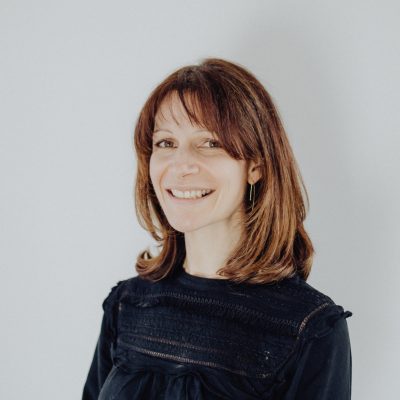“What’s your name, and where do you come from?”
Said in a Scouse accent, this catchphrase brings me back to my childhood Saturday nights watching Blind Date with Cilla Black. But together, these two inseparable questions – who you are (place), and where you are (identity) – are much deeper than a lighthearted TV icebreaker. Our identity and our place are important questions about being human, because “to be at all – to exist in any way – is to be somewhere, and to be somewhere is to be in some kind of place” (as philosopher Edward Casey puts it).
In 2008, I moved with my husband and son from Belfast to live in Bangladesh. One expert advised us to say formal goodbyes not just to people, but to places – the family home, the favourite coffee shop, the local park. I was bemused, until one year into our transition I found myself yearning to see, walk through, be back in my favourite, familiar places.
Personhood: purposed for our place
Genesis 1:26 – 27 outlines that humanity is divinely designed to be placed. The first human act of worship was for humanity to hear and respond to the Creator’s command to exercise their image-bearing dominion over their patch of creation: to subdue and protect, to develop and multiply, to create and cultivate (Genesis 1:26 – 28, 2:15 – 17).
Israel in exile were told to put roots down in their new place, to seek the welfare and flourishing of that city (Jeremiah 29:7). Jesus incarnationally came to live, dwell, reside among us, as a person – from birth to death He was rooted in his place (John 1:1). He sent his followers into new places to be deeply present (Luke 10:5 – 12); He taught us to pray for His kingdom rule to come… where? Here. On earth – just as it is in heaven (Matthew 6.10).
Paul and the apostles planned spiritually and strategically to extend the kingdom rule according to place – cities, areas of the Roman empire not yet reached. His epistles identify each fledgling Christian community as the church in, of, and for their place.
I wonder if our imagination of life beyond this life has caused us to neglect the importance of our earthly places. The consistent biblical promise is not that we will ‘go to heaven’ but that we “will be with the Lord” in a transformed earthly realm where Christ has made “all things new” and reunited the earthly and heavenly realms. Our earthly places matter to God!
In the new creation, the redeemed “kings of the earth” will present their “treasures” to the Lord, the good things created by humanity within their geographic, historic contexts (Revelation 21:24). I can’t help but imagine we will be delighting in the vibrant colourful silk textiles, curry dishes and ektara music of Bangladesh and the crisp linens, warm soda bread and penny whistle tunes of Ireland – that have fed, clothed and brought joy to a people, as well as sustained their economies.
"I wonder if our imagination of life beyond this life has caused us to neglect the importance of our earthly places."
Prepare for personhood and purpose – in your place
What does it look like for you, your small group, your church community, to fulfil your purpose and participate with Christ as He makes all things new – right here, right now?
Here are some steps:
- Deep presence in your place: What is your place? Name it (like a parish) and all that is within it. Enter into it. Understand your place.
- Be present to yourself within your place: Own and love your place – take up your dominion there (note, dominion is different to domination); celebrate and take delight in all that is good in your place; perceive what is lacking, and mourn the brokenness of life there.
- Be present to one another in your place: Who is here? What do they love? Where do they go? Create community connection in your place – love people!
- Be present to God in your place: What is God doing there? Can you pray, hungry and thirsty for His kingdom reign to come into and over that place? Can you respond, and offer yourself to become the answer to your kingdom-come prayer?
As I walked my daily local walk over Covid lockdowns, so intensely present in my place, I began to pray. Through these prayer walks, I became more intentionally present to myself, to others and to God – and even in the darkest days of the pandemic, I became alive as I participated with Christ in and for my place. In these prayer walks, I experienced my significance as the Donna Jennings that was designed and purposed to be, in this, my time and my place.
Something to help you:
We would love for you to try this out in your place, and so these resources are freely available to help you, formed from my own explorations of prayer walking:
Walk and Pray: a simple and easy-to-use resource for you to walk and pray around your place.
Walk, Pray Talk: a five-session resource including liturgy, prayers, Bible reflections, and practical go-out-and-do ideas. Perfect for the whole church together, small groups or friendship circles, to help you dig deeper into personhood, purpose and place.
Across the UK Christians and churches have been walking, praying and talking these same words in and for their places. Why not try it out, as together we seek His kingdom come here, and there, in our patches and places of earth, as it is in heaven.
"Israel in exile were told to put roots down in their new place, to seek the welfare and flourishing of that city (Jeremiah 29:7)."



